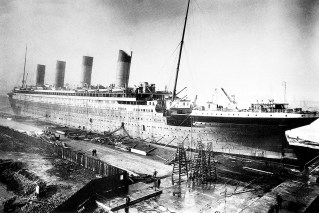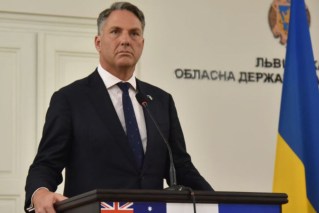‘We feel that Lebanon is dead’: Beirut explosion in victims’ own words

One moment Maria El Asmar was in a convertible with her three best friends, driving through her home city on the eve of her 22nd birthday.
The next she was hitting the pavement, blood streaming down both sides of her head as she looked for somewhere to hide.
Maria was convinced her country was at war.
“While seeing my best friend completely covered in blood running in front of me, I remember feeling like I really didn’t want to die now and began praying while running,” she told The New Daily.
To keep herself going, Maria repeated a mantra about her future plans: “You’re going to Italy. You’re going to study medicine. Everything is going to be all right”.
But the future was hard to imagine while Beirut was collapsing around her. And a path out of the danger impossible to see – literally.
Maria was just one of more than 6000 people injured in the explosion that has rocked the country.

Maria (left) with one of her best friends. Photo: Patricia Barakat
At least 163 people were killed when thousands of tonnes of dangerous ammonium nitrate exploded in the city’s port last week.
This has resulted in the resignation of Lebanon’s government.
The death toll from the explosion is certain to rise; people are still missing, and hopes anyone could have survived so long under the debris are fading.
Thousands of people have been left homeless.
Maria had been struck by a large rock. Once out of the car and running from the scene, the blood covered Maria’s eyes to the extent that she thought she’d gone blind.

Patricia with her daughter Maria. Photo: Patricia Barakat
Her mum, Patricia Barakat, said Lebanon has experienced many tragedies, but “this time, as my daughter said to me, we feel and realise that Lebanon is dead”.
When Maria leaves for Italy to study medicine – and she’s determined she will still go – she’s adamant she isn’t coming back home.
“This breaks my heart,” Patricia said.
Hearts are breaking all over the city.
Abbas Sibai is mourning the loss of three childhood friends killed in the port blast.
Two other friends are missing. Another had his hand blown off.
Abbas, 33, doesn’t know how he survived.
A multi-area project co-ordinator for World Vision, he had been working inside his office located three kilometres from Beirut’s port when the building started to shake.
Within seconds, Abbas found himself buried under a collapsed wall.
“If our office and where I was was totally smashed, what would be the situation in the other closer areas?” he said.
“This is the thing that I’m not able to comprehend.”

Abbas suffered bruising on his back and developed an infection from inhaling so much dust. Photo: Abbas Sibai
Nearby, Save the Children worker Nour Wahid had decided to go home earlier than usual that day.
She recalled lying on her bed, talking to her sister who was sitting beside her when they felt what they thought was a “massive earthquake”.
“We heard the screams around us and from far away,” Nour said, recalling they ran into the hallway to take cover.
The front door detached from the hinge, knocking Nour and her sister to the ground.
Meanwhile, her panicked nieces – who were on the balcony – started running barefoot over broken glass.

Nour fractured her elbow in the blast. Photo: Nour Wahid
At this time, a close friend of hers who had given birth about a month ago was in an Adidas shop looking to buy a gift for someone.
She is now in a coma.
Near the port area, a teacher who had taught Nour in university was in his apartment.
He is now dead.
“I have a friend whose brother died as well and another one who has died also. There are many if I cite them for you, you would end up with a list of names,” Nour said.

Mahmoud considers himself lucky to have not been in Beirut. Photo: Mahmoud Mroueh
Architect Mahmoud Mroueh, 28, lives six kilometres from the port but was outside Beirut when the explosion happened. He is yet to return home.
“Every Lebanese living in Beirut used to visit that area at least once a week if they’re not working there,” Mahmoud said.
“Even if I want to leave Beirut to go somewhere to the north of Lebanon I have to drive near the port.
“It’s terrifying to know that anyone could have been a victim of that explosion.”

‘What if the Beirut blast hit my city?’ A global campaign launched by Global Shapers Beirut Hub. Graphic: Abbas Sibai








